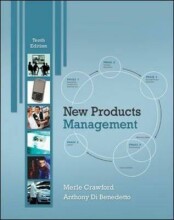Systematic methods of innovation management - TRIZ levels
12 important questions on Systematic methods of innovation management - TRIZ levels
TRIZ levels: philosophy, method and tools
- ideality
- contradictions
- functionality
- resources
- space/time/interface
- A complete problem definition/solving process
- IFR
- ARIZ
- etc.
TRIZ; space/time/interface
- About perspective on problems
- NOT only physically and temporally
- BUT also the relationships and interfaces between the things
TRIZ prism: TRIZ approach to problem solving
- Specific factual problem
- Conceptual problem
- Conceptual solution
- Specific factual solution
- Higher grades + faster learning
- Never study anything twice
- 100% sure, 100% understanding
TRIZ prism; specific factual problem
- Identify the problem by defining the system we have and the system we want (ideality)
TRIZ prism; conceptual problem
- Conceptual problems describe the functions which are needed or missing or excessive or harmful or insufficient
TRIZ prism; conceptual solution
TRIZ; main tools and techniques
- 40 inventive principles: for solving contradictions
- 8 trends of technical evolution: for identifying directions of technology development
- 76 standard solutions: for solving system problems
- Database of scientific effects: concepts used for inventive problem solving
- Nine windows (or thinking in time and scale): for understanding the context of a problem and finding solutions
Contradiction types principles:
- Technical contradiction: 39 engineering/technical parameters
- Physical contradiction: 4 separation principles
Physical contradiction: 4 separation principles
- Separate in time: having opposite things at different time
- Separate in space: wanting opposite things at the same time but in different places
- Separate in condition: wanting opposite things ate the same time, in same place but for different features
- Separate by system: wanting opposite things at different levels
TRIZ; 76 standard solutions
Database of scientific effects
- Describe your problem in a normal 'How question' --> how can i clean my car windscreen
- Define an X-factor question to describe what you are hoping to do?
- Go to an effects database and look up the functions you want
- Translate conceptual solutions into real world solutions
Triz; nine windows
- Time: thinking about a system in present and how was it in the past and use that to figure out how it will look in future
- Scale: understanding the context of a system-up into the big picture through super-system and down into details through sub-system
The question on the page originate from the summary of the following study material:
- A unique study and practice tool
- Never study anything twice again
- Get the grades you hope for
- 100% sure, 100% understanding






























